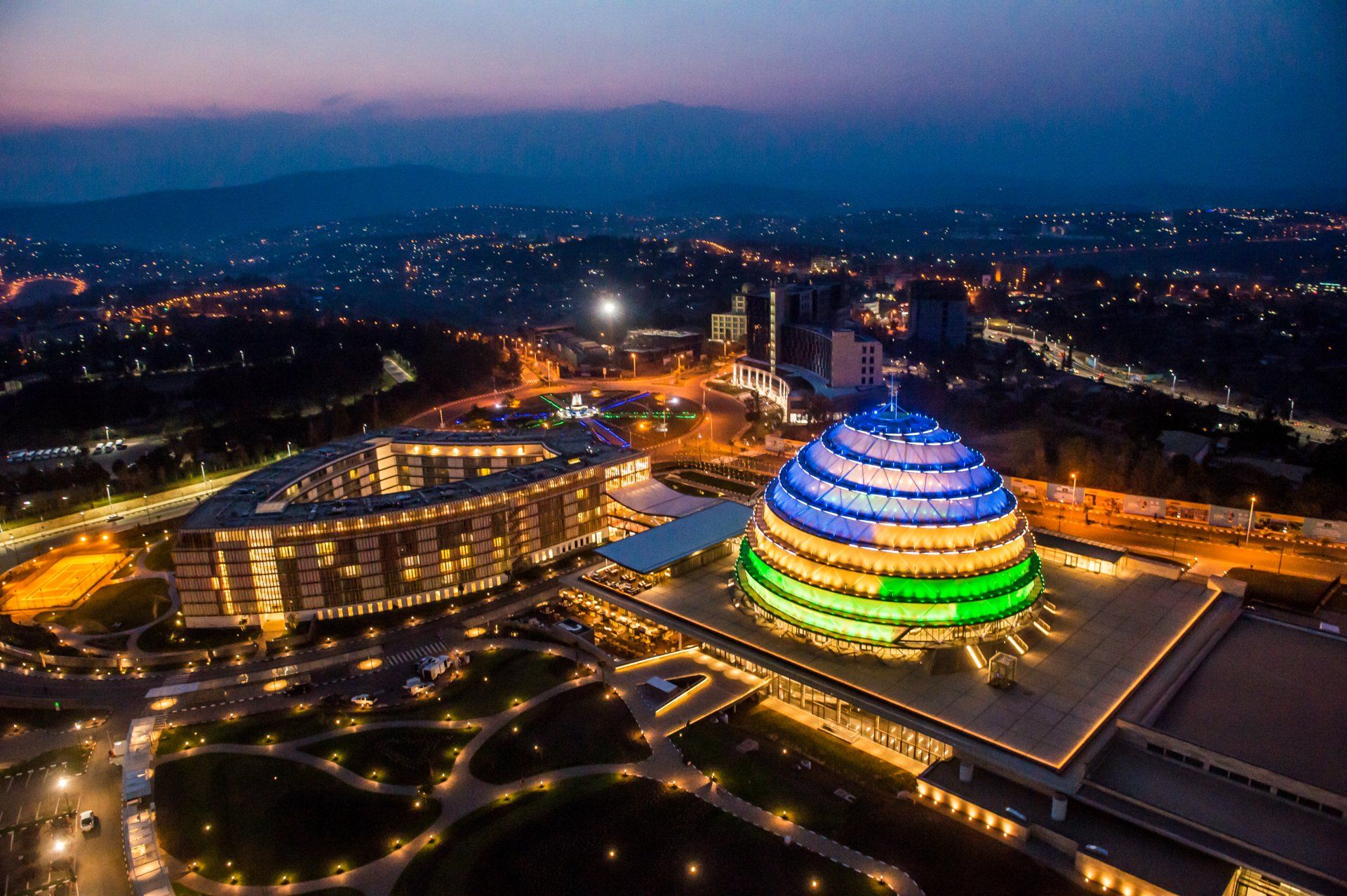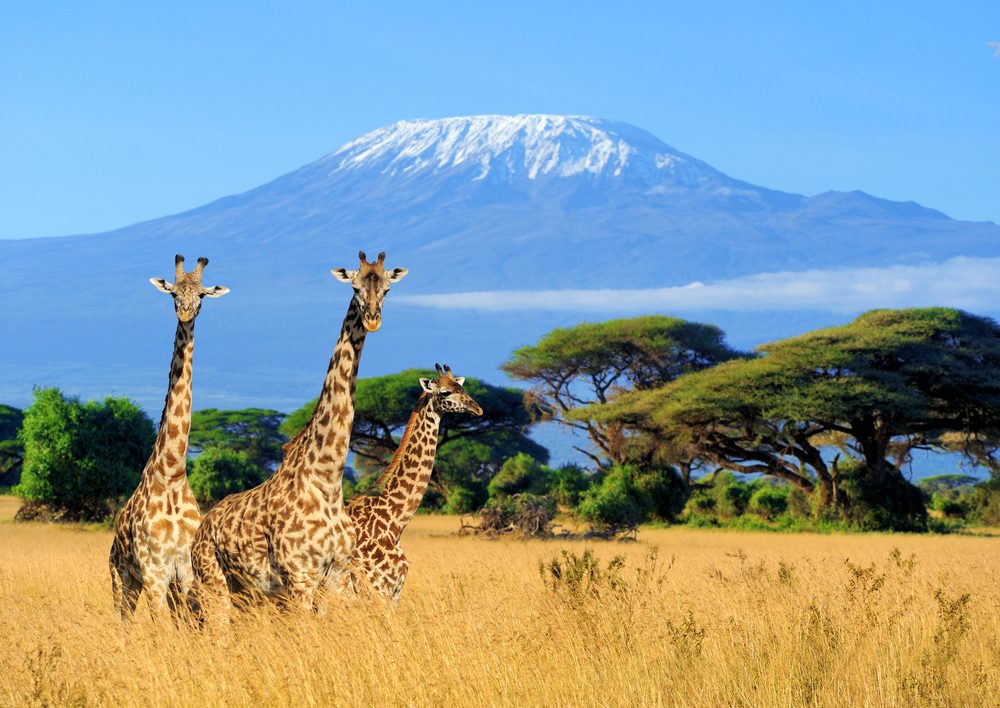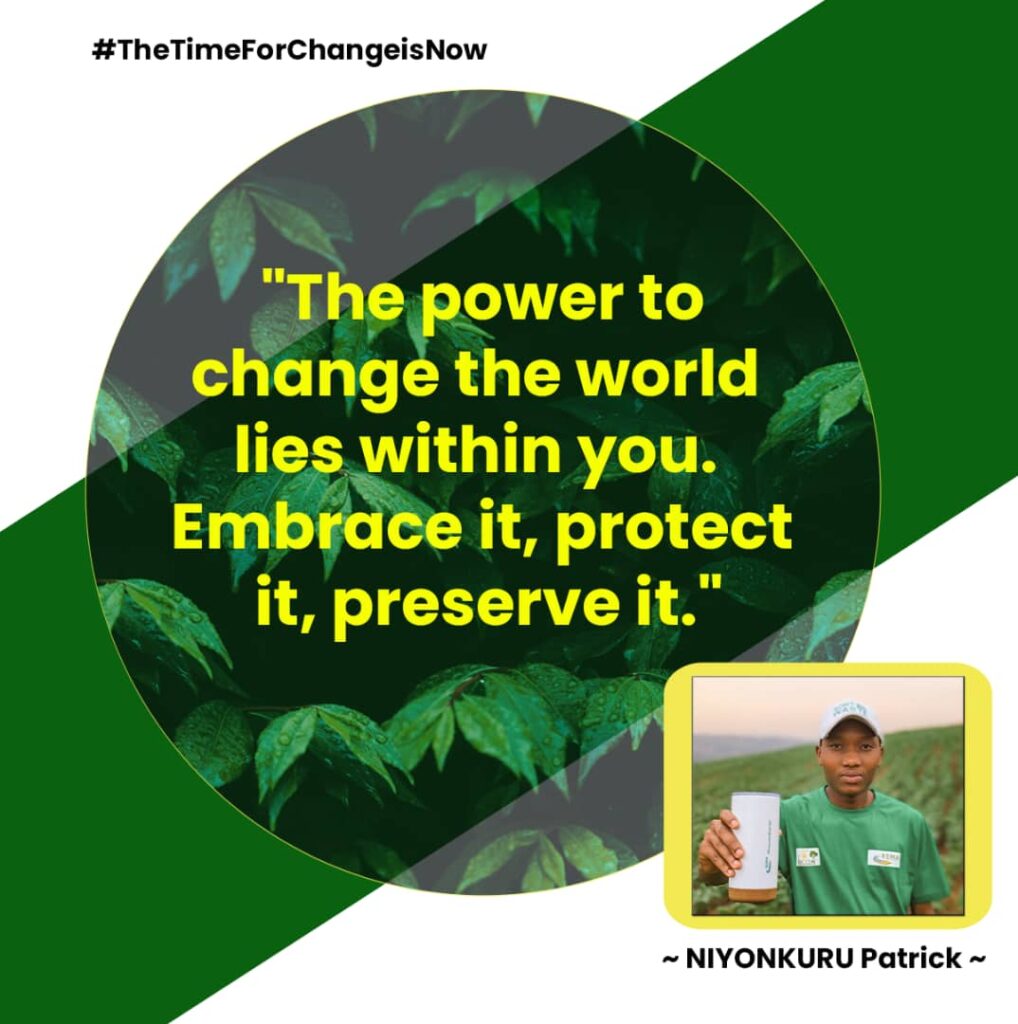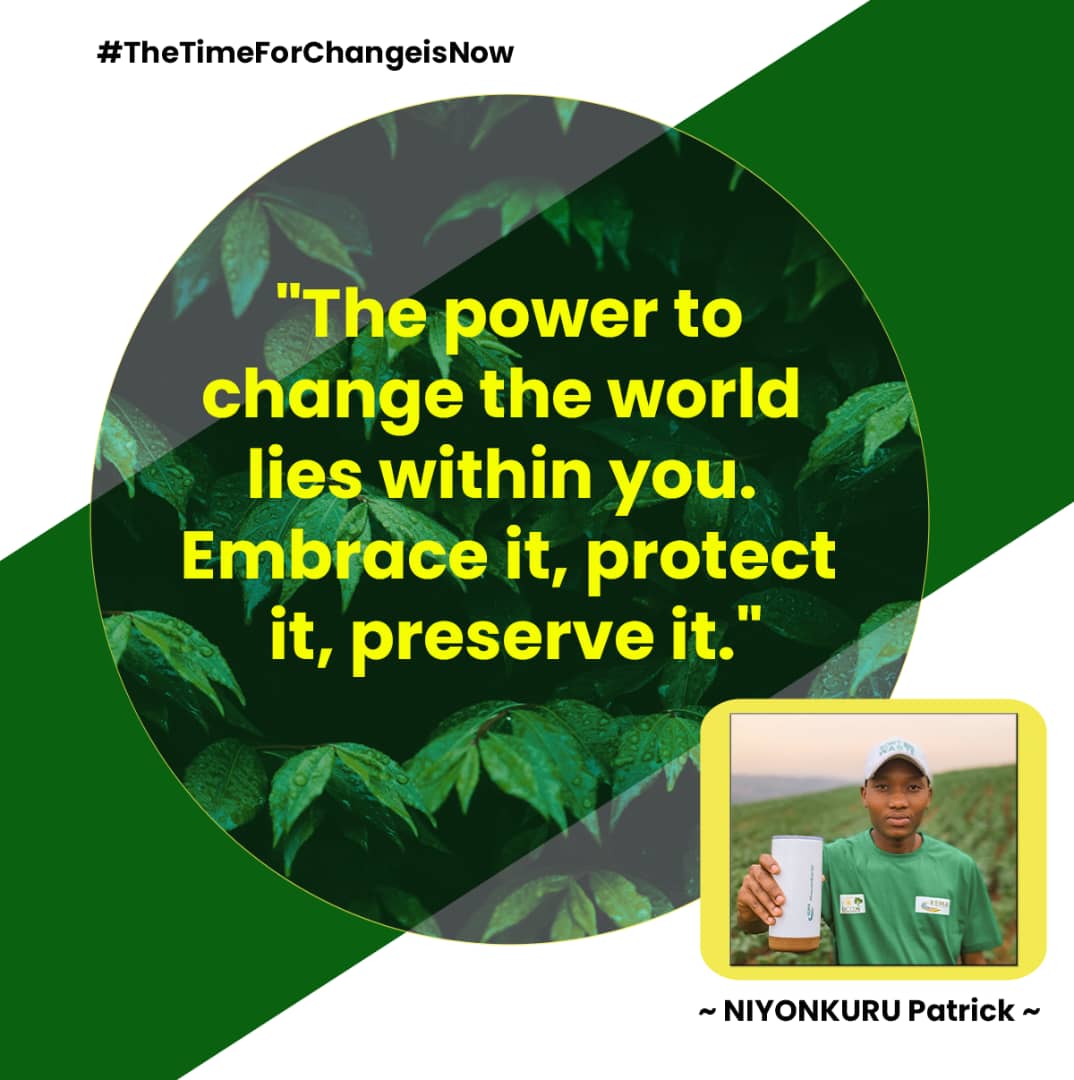
Addressing Climate Change: A Call to Action for a Sustainable Future
Climate change is one of the most pressing issues facing our planet today, driven primarily by human activities such as deforestation, burning fossil fuels, and industrial practices. The resulting effects — from rising global temperatures to melting ice caps — are reshaping our world in ways that threaten the environment, disrupt economies, and impact communities worldwide. As a travel agency committed to promoting sustainable tourism, Ibigwi Tours recognizes the importance of addressing this crisis and encourages our travelers and partners to join us in creating a positive, lasting impact.
The Impact of Climate Change on Our Planet
The evidence is clear: our climate is changing at an alarming rate. Extreme weather events such as hurricanes, wildfires, and floods are becoming more frequent and severe. Rising sea levels threaten coastal communities and ecosystems, while melting glaciers and ice caps contribute to the loss of biodiversity and critical freshwater resources. The natural beauty and cultural heritage we cherish in our travel destinations are under threat, affecting not only the environment but also local economies and communities that depend on tourism.
How Climate Change Affects the Travel Industry
The travel industry is particularly vulnerable to the impacts of climate change. Natural disasters, changes in weather patterns, and the loss of biodiversity can disrupt travel plans, damage infrastructure, and reduce the appeal of certain destinations. Additionally, climate change is altering migratory patterns of wildlife, and many iconic attractions — from coral reefs to safari regions — face the risk of disappearing.
At Ibigwi Tours, we believe that tourism should not only showcase the wonders of the world but also contribute to its preservation. As travelers, we have a responsibility to minimize our environmental footprint and support destinations dedicated to sustainable practices.
Measures Taken by the Government of Rwanda To Fight against climate Change
Rwanda has emerged as a global leader in environmental conservation and climate action, setting an example with its innovative policies and programs:
1. Restoration of Natural Ecosystems:
Rwanda has pledged to restore 2 million hectares of degraded land by 2030 under the Bonn Challenge, leading global efforts in forest conservation and ecosystem restoration which Will reduce greenhouse gas emissions by 38% (4.6 million tons of carbon dioxide).
Rwanda has made significant progress in restoring and rehabilitating its wetlands, including:
A 121-hectare wetland in Kigali that was restored and turned into an ecotourism park. The project involved removing polluting industries, planting trees and plants, and creating a place for residents and visitors to enjoy.
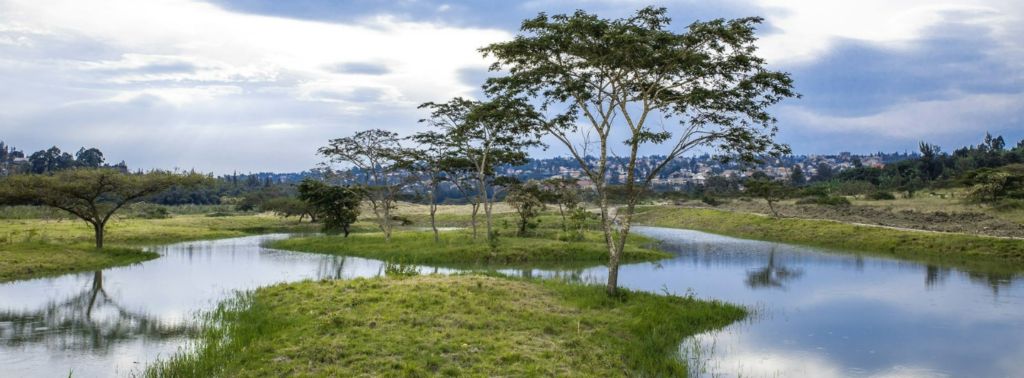
Rugezi wetland
A 7,000-hectare wetland in the Northern Province that’s a Ramsar site
‘’Rwanda ratified Ramsar convention by Law n° 37/2003 of 29 December 2003’’
This wetland is an important bird area. It filters water into Lake Burera and Lake Ruhondo, which feed two of Rwanda’s largest hydropower plant.
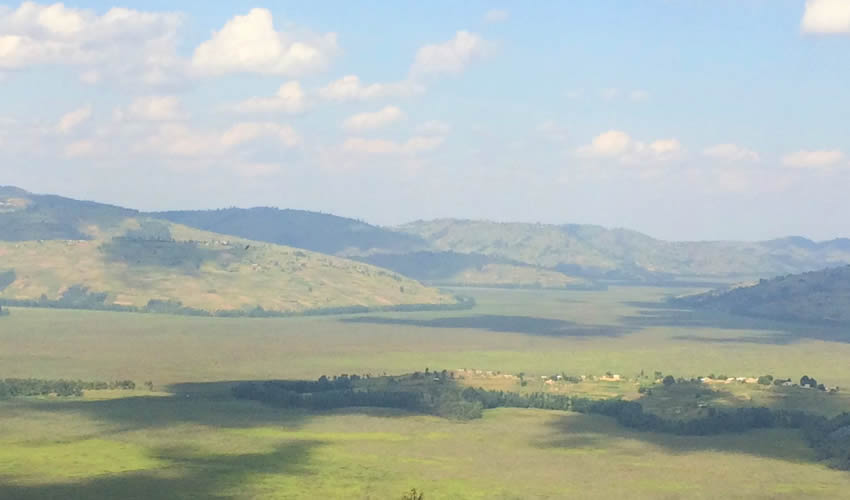
Kigali’s wetlands
Five wetlands in Kigali, These include; Kibumba, Nyabugogo, Rugenge-Rwintare, Rwampara, and Gikondo are being rehabilitated as part of the Rwanda Urban Development Project II (RUDPII). The project aims to improve water quality, reduce flood risk, and create recreational opportunities. The wetlands will be divided into three zones: conservation, sustainable use, and tourism and recreation.
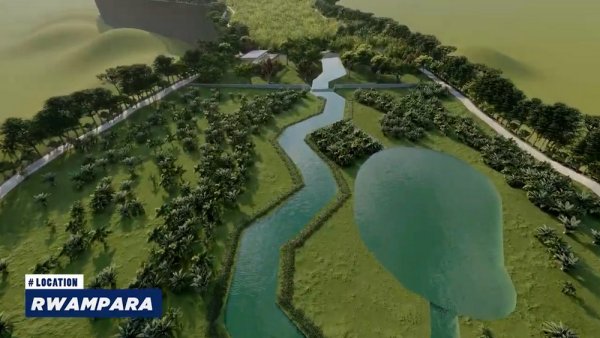
2. Promotion of Renewable Energy:
In line with Energy and Environment policies of Rwanda to gradually offset the use of wood and charcoal; the government has stepped forward to promote the use of modern bio-energy technologies, improved cooking facilities, and efficient cleaner fuels alternatives (biogas, pellets, briquettes, etc.) to improve efficient use of Bio-energy.
Investments in renewable energy, such as solar, hydropower, and biogas, are reducing reliance on fossil fuels while ensuring rural electrification.
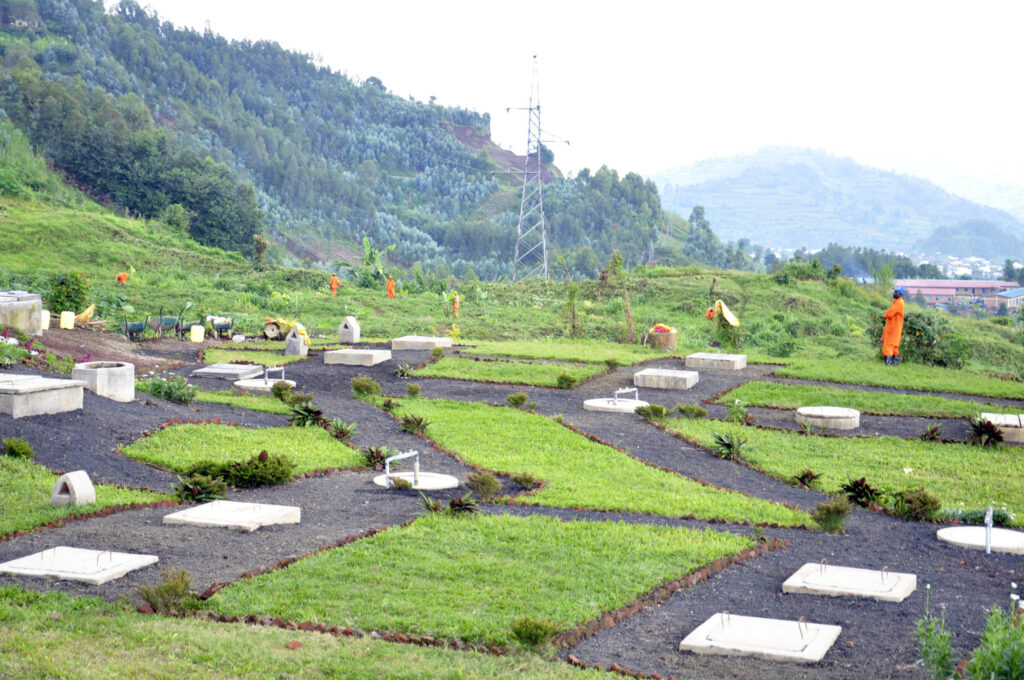
3. Ban on Single-Use Plastics:
September 2008 Rwandan parliament passed Law N57/2008 which prohibited the manufacture, importation, use, and sale of polyethylene bags in Rwanda. This law established the initial framework for policies relating to sustainability. Indeed, guided by the Organic law of 2005, The law defined polythene bags as synthetic plastic made up of numerous simple chemicals called ethene (monomer). In August 2019, this regulation was expanded to include other single-use plastic products, including straws, bottles, and food containers.
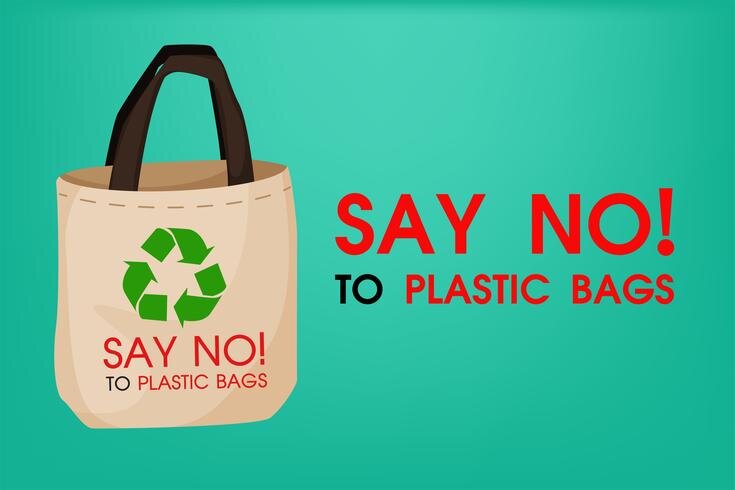
4. Green City Kigali Project:
The Government of Rwanda (GoR), under its Economic Development and Poverty Reduction Strategy EDPRS (II), has pioneered a vision of a Green City Concept. A 620-hectare site has been selected in Kinyinya, Gasabo District, Kigali City.
The project aims to showcase the viability of green cities in Rwanda and elements that could be replicated in the development of secondary cities across the country with green technologies and innovations for green and climate resilient urbanization.

5. Support for Climate-Smart Agriculture:
Climate-smart practices, like agroforestry and water conservation, enhance food security and help farmers adapt to changing weather patterns.
6. Sustainable Tourism Investments:
Conservation-focused tourism in Volcanoes, Akagera, and Nyungwe National Parks ensures the protection of biodiversity while benefiting local communities.
7. National Climate Change Policy:
Rwanda’s policies, supported by the Rwanda Green Fund (FONERWA), finance climate adaptation and mitigation projects across the country.
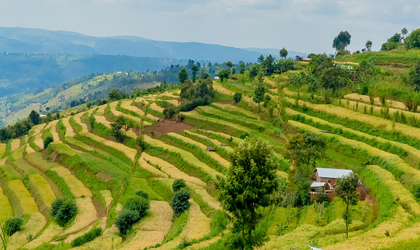
8. Public Awareness Campaigns:
Initiatives like Umuganda (community cleanup days) engage citizens in environmental conservation and foster a shared responsibility for nature.

What Can We Do? A Call to Action for Sustainable Travel
While the challenges are significant, there is still hope. By making conscious choices, we can reduce our impact on the planet and help combat climate change. Here’s how travelers can take action:
1. Choose Sustainable Travel Options:
Opt for eco-friendly accommodations, transportation, and tours. Look for carbon-neutral travel packages and eco-certified hotels.
2. Support Local Communities:
Choose experiences that highlight local culture and foster long-term benefits for residents by supporting local businesses.
3. Offset Your Carbon Footprint:
Invest in carbon offset programs like those offered by Ibigwi Tours to neutralize emissions through renewable energy and conservation projects.
4. Be Mindful of Wildlife and Natural Resources:
Avoid activities that exploit wildlife or degrade natural habitats. Opt for ethical, conservation-focused experiences.
5. Spread Awareness
Share your sustainable travel experiences to inspire others to make eco-conscious choices. Together, we can amplify our impact.
Our Commitment to Sustainability
At Ibigwi Tours, we are dedicated to integrating sustainability into every aspect of our operations. We partner with organizations committed to reducing their carbon footprint and preserving the environments and cultures we visit. Our goal is to provide travelers with unforgettable experiences that not only enrich their lives but also contribute to the protection of our planet for future generations.
The Future Is in Our Hands
Climate change is a challenge that affects us all, but it also presents an opportunity for change. By adopting sustainable practices and supporting eco-conscious travel, we can help preserve the natural wonders we love and ensure that future generations can experience the world in all its beauty.

Let’s work together to protect the planet, one journey at a time. Join us at Ibigwi Tours in making a difference today. Choose sustainability, choose responsibility, and choose a brighter, greener future for all
#SustainableTravel #ClimateAction #EcoTourism #IbigwiTours #ProtectThePlanet



